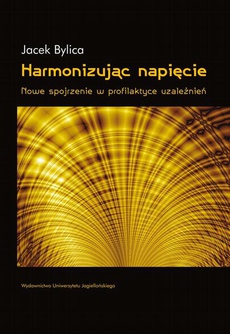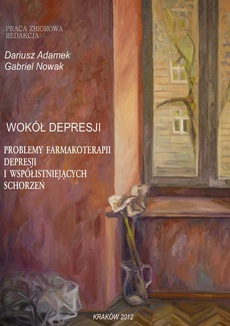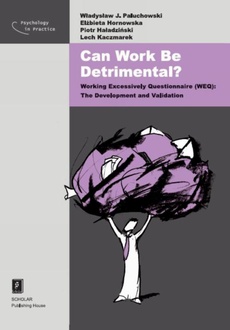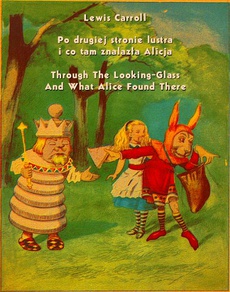POLECAMY
Working Through What Is
Depression and the Predicament of Reality in Poland
Autor:
Wydawca:
Format:
ibuk
Przepracować to, co jest: depresja i problemy z rzeczywistością we współczesnej Polsce
Jak zrozumieć współczesne rozpowszechnienie depresji jako kategorii diagnostycznej i kulturowej? Jaką rolę odegrały w nim transformacja postsocjalistyczna oraz budowanie porządku neoliberalnego?
Niniejsza monografia współczesnej polskiej depresji ukazuje procesy społeczne, kontekst polityczny, zmiany semantyczne i rozwiązania systemowe, które kształtują znaczenia, sposoby doświadczania, rozumienia i terapii tego zaburzenia. Przyglądając się „karierze” depresji w Polsce po 1989 roku, Autor uwzględnia nie tylko społeczne uwarunkowania praktyk klinicznych, ale także formułuje tezy dotyczące szerszego zjawiska, stanowiącego tło omawianego problemu: kulturowej dynamiki „urealnienia”, czyli społecznie wytwarzanego poczucia realności tego, co nas otacza. Tekst dotyka więc zagadnień teorii kultury, zachowując przy tym etnograficzny, empiryczny charakter.
Książka skierowana jest przede wszystkim do odbiorców z kręgów akademickich – z dziedzin społecznych, kulturoznawczych i humanistycznych – a także do wszystkich zainteresowanych społecznymi czynnikami wpływającymi na zdrowie psychiczne i kulturowymi wymiarami kapitalizmu.
Publikacja na licencji Creative Commons Uznanie autorstwa 3.0 PL (CC BY 3.0 PL) (pełna treść wzorca dostępna pod adresem: http://creativecommons.org/licenses/by/3.0/pl/legalcode).
Grzegorz Sokół łączy w książce najlepsze tradycje humanistyki: głęboki namysł nad obserwowalną, namacalną rzeczywistością konkretnych ludzi z zaawansowaną refleksją teoretyczną. Konkretem etnograficznym, od którego wychodzi autor jest depresja, rozumiana nie jako szczególna kategoria diagnostyczna, ale także jako pewien konstrukt używany w potocznych dyskursach, mediach i na spotkaniach tzw. anonimowych depresantów. Autor pokazuje, jak depresja stała się nowym idiomem cierpienia, charakterystycznym dla polskiej rzeczywistości potransformacyjnej. Ostatecznie jednak książka nie jest tylko opowieścią o tym, jak leczono w Polsce potransformacyjnej i jak doświadczano terapii, ale jest bardzo oryginalną i ciekawą mikrohistorią Polski. (Z recenzji prof. ucz. dr. hab. Magdaleny Radkowskiej-Walkowicz, Instytut Etnologii i Antropologii Kulturowej, Uniwersytet Warszawski)
Obszar i zakres badań i doświadczeń opisywanych przez autora jest imponujący. Publikacja może spotkać się z zainteresowaniem potencjalnych i aktualnych pacjentów albowiem wykracza poza oficjalny i stereotypowy opis praktyki psychiatrycznej i psychoterapeutycznej. Kategoria „urealnienia” stanowi osobny wkład naukowo-badawczy i pozwala lepiej rozumieć dynamikę tworzenia społecznej rzeczywistości. (Z recenzji prof. ucz. dr. hab. Andrzeja Kapusty, Wydział Filozofii i Socjologii, Uniwersytet Marii Curie-Skłodowskiej w Lublinie)
*********
How do we account for the current proliferation of depression as a diagnostic and cultural category? How has its rise interplayed with the postsocialist transformation and the construction of the neoliberal order?
This monograph of contemporary Polish depression sheds light on the social, political, and semantic processes that have shaped its meanings, ex- periences, understandings, and treatments. Examining depression’s history in Poland after 1989, the author not only considers the social conditions of clinical practice, but also explores a broader phenomenon of the cultural dynamic of realification (urealnienie) – the socially produced sense of realness of the world around us. The book thus touches upon various aspects of cultural theory while keeping an ethnographic, empirical character.
It is addressed to the academic audience in the field of social sciences, cultural studies, or humanities, as well as anyone with an interest in the social factors shaping mental health and the cultural dimensions of capitalism.
The publication is licensed under the Creative Commons Attribution-Share Alike 3.0 Poland license (CC BY 3.0 PL) (full license available at: https://creativecommons.org/licenses/by/3.0/legalcode).
In his book, Grzegorz Sokół brings together the best traditions of the humanities: a deep consideration of the observable, tangible reality of individual people and a sophisticated theoretical reflection. The author’s starting point is the concrete ethnographic object of depression, understood not just as a specific diagnostic category, but also as a construct used in everyday discourse, in media, and at meetings of Depressed Anonymous. The author shows that depression has become a new idiom of suffering characteristic of the Polish post-transformation reality. Ultimately, the book is a very original and compelling microhistory of Poland.
(Magdalena Radkowska-Walkowicz, Associate Professor Institute of Ethnology and Cultural Anthropology, University of Warsaw)
The area of research and range of experiences examined by the author are truly impressive. Reaching beyond official and stereotypical descriptions of psychiatric practice, this book may interest current and potential patients. The category of “realification” constitutes a unique research contribution and offers a better understanding of the dynamic behind the production of social reality. (Andrzej Kapusta, Associate Professor Faculty of Philosophy and Sociology, Maria Curie-Skłodowska University in Lublin)
*********
Dr Grzegorz Sokół (ORCID 0000-0002-3495-9960) – antropolog kultury, absolwent New School for Social Research w Nowym Jorku, gdzie obronił doktorat, oraz adiunkt na Wydziale „Artes Liberales” Uniwersytetu Warszawskiego. Interesuje się antropologią medyczną i psychiatryczną, kulturowymi wymiarami polityki i intymności oraz społecznym wytwarzaniem rzeczywistości. Pracuje także jako dziennikarz, producent i dokumentalista.
---------
PhD Grzegorz Sokół (ORCID 0000-0002-3495-9960) – received his doctorate in sociocultural anthropology from The New School for Social Research in New York and is currently an assistant professor in the Faculty of “Artes Liberales” at the University of Warsaw. His interests include medical and psychiatric anthropology, cultural dimensions of politics and intimacy, and social production of reality. He also works as a journalist and a documentary producer.
| Rok wydania | 2023 |
|---|---|
| Liczba stron | 252 |
| Kategoria | Psychologia kliniczna i psychoterapia |
| Wydawca | Uniwersytet Warszawski |
| ISBN-13 | 978-83-235-5804-0 |
| Numer wydania | 1 |
| Informacja o sprzedawcy | ePWN sp. z o.o. |
Ciekawe propozycje
Spis treści
| Acknowledgements | 7 |
| Introduction: The realness of reality 9 | |
| “New reality” | 9 |
| Reality in psychiatry and psychotherapy | 14 |
| Realification as an analytic concept, reality as an | |
| ethnographic object | 21 |
| “Real socialism” and the reality gap | 25 |
| A world lost | 29 |
| Infantile fantasies | 31 |
| Depression as idiom, problematization, and assemblage | |
| 33 | |
| Methods in the ethnography of depression | 34 |
| Summary and overview of chapters | 38 |
| PART I: DIAGNOSTICS | 43 |
| Chapter One: Critical conditions 45 | |
| “I couldn’t manage anymore” | 45 |
| Idioms of distress | 50 |
| A time before depression | 52 |
| The afflictions of Homo sovieticus | 57 |
| The politics of the suicide rate | 59 |
| Depression at the margin | 63 |
| A most unfortunate man | 67 |
| Pharmaceuticals and real depression | 71 |
| Raising awareness | 74 |
| Critical conditions | 75 |
| Conclusion | 79 |
| Chapter Two: Affective disorder | 81 |
| Diagnostic transformation | 84 |
| A deficit of realness | 87 |
| Referentiality of diagnostics | 91 |
| Clinical agency | 96 |
| Diagnosing purchasing power | 102 |
| Conclusion | 107 |
| PART II: THERAPEUTICS | 109 |
| Chapter Three: The psychopolitics of incapacity and care 111 | |
| From care to assistance | 114 |
| “Chronic rentosis” | 120 |
| Urealnienie: maturity, emotionality, and the | |
| depressive position | 124 |
| The immaturity of pan Roman | 130 |
| Emotionality | 137 |
| Pani Honorata: incapacity, anger, and acceptance | 141 |
| Conclusion | 144 |
| Chapter Four: The ethic of powerlessness 147 | |
| The Twelve Steps | 153 |
| Crisis and reform | 156 |
| Anonimowi Depresanci | 160 |
| Powerlessness | 165 |
| Entrustment | 170 |
| The powerless subject | 173 |
| Conclusion | 176 |
| In lieu of conclusion | 179 |
| Notes 185 | |
| Notes to Introduction | 185 |
| Notes to Chapter One | 191 |
| Notes to Chapter Two | 195 |
| Notes to Chapter Three | 204 |
| Notes to Chapter Four | 211 |
| Notes to In lieu of conclusion | 220 |
| List of figures | 223 |
| References cited | 225 |
| Index 245 | |

























